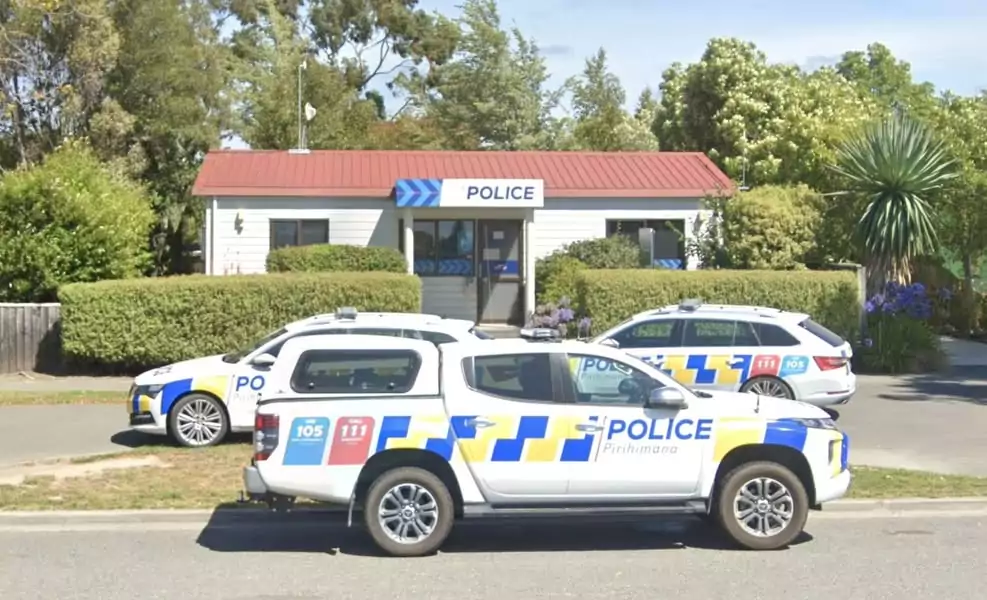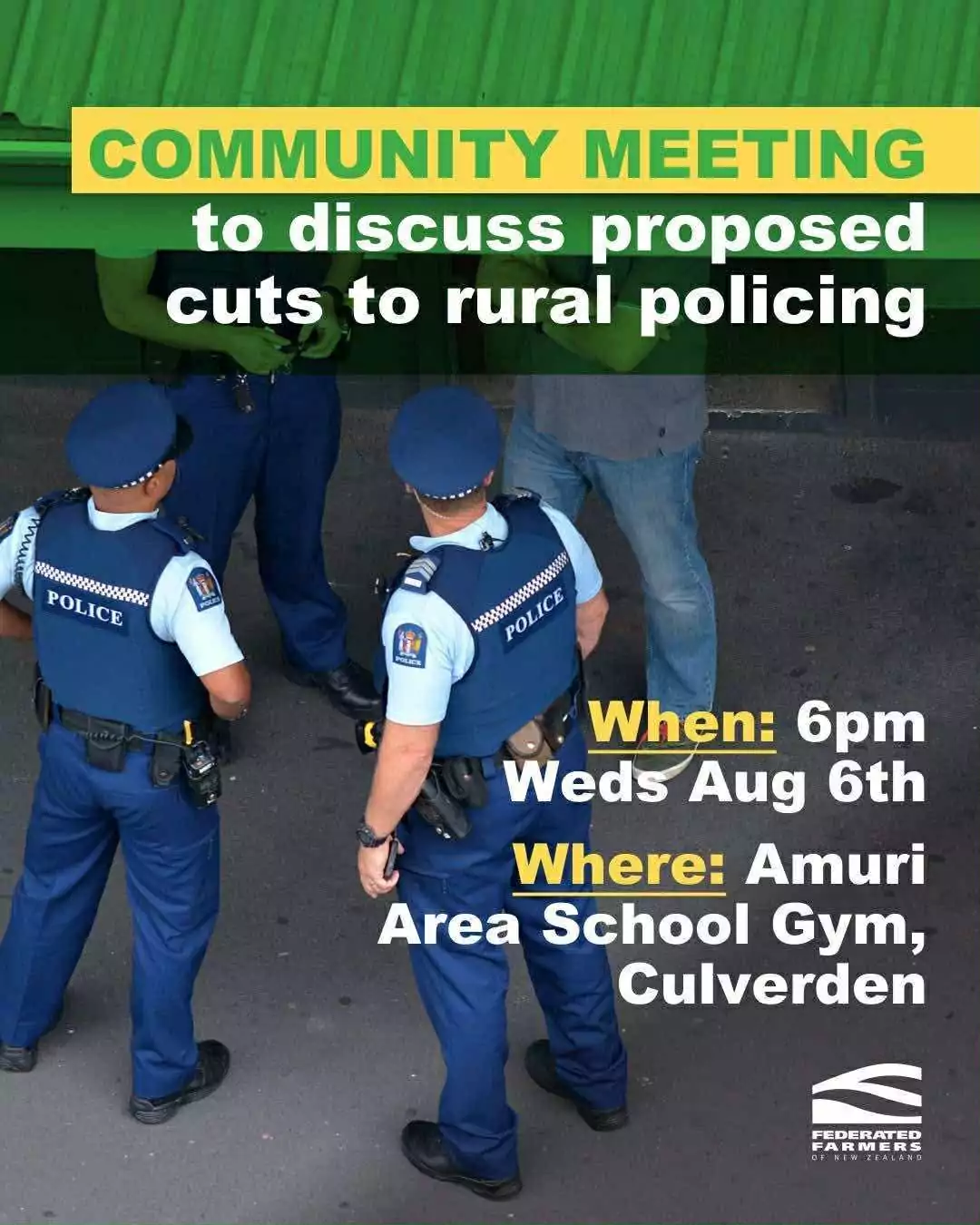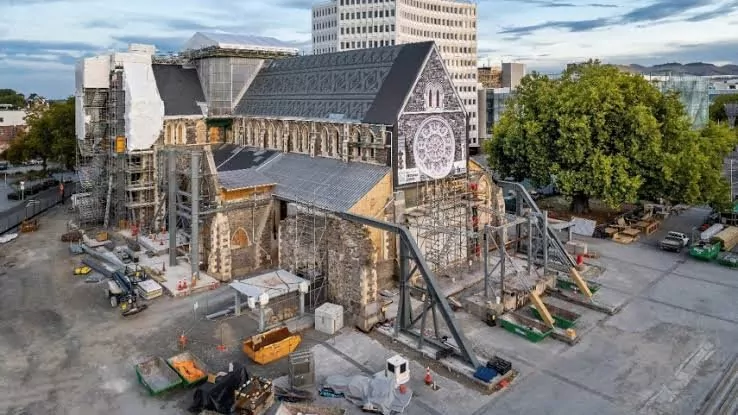Escaped youth tracked by Eagle helicopter, found hiding in New Brighton
The young person who escaped from a youth justice facility in Rolleston has been located...

A North Canterbury farmer says they are feeling unsafe under the current government, as plans emerge to slash frontline police positions in the region.
Five police roles are proposed to be cut from Amberley and Culverden, leaving four officers to cover a vast rural area.
A number of rural stations could be disestablished, in favour of larger 24/7 hubs in Rolleston and Rangiora.
Local farmer Andrew Mason said the move is reminiscent of the sweeping rural reforms of the 1980s, except this time, he says, the threat is coming from the very government the community has long supported.
“It feels like being stabbed in the back,” Mason said, in response to Kaikōura MP Stuart Smith’s recent comments suggesting there would be an “overall increase” in policing for rural Canterbury.
Smith cited the inclusion of local traffic officers and a proposed receptionist in Amberley as part of that increase.
“Either Stuart thinks the North Canterbury community is stupid, or he’s been told by Cabinet to toe the thin blue line and let the gutting continue,” Mason said.
Mason rejected the government’s attempt to count NZTA-funded traffic officers living in Hanmer as Culverden-based police, saying, “The community is being fed rubbish.”
He warned that with only four remaining police officers, and only two on-call at a time, large parts of the district will often be left without any local police coverage, especially during leave or illness.
He said backup could take up to four hours in serious emergencies, putting both the public and responding officers at serious risk.
“These out-of-town officers are being stretched to cover massive gaps. They’re put up in hotels, separated from their families, and often expected to cover distances too great to respond effectively. It’s no wonder we’re losing good police to Australia.”

Mason said the pressures were not limited to North Canterbury. He pointed to similar issues in Northland, where he claimed Superintendent Tony Hill’s leadership resulted in a reliance on rotating outside officers who, while capable, lack the local knowledge to respond effectively.
“The same superintendent is now behind these proposed cuts in North Canterbury,” Mason said. “It’s a pattern of centralisation that leaves rural communities exposed.”
Mason is calling for Police District Commander Tony Hill and a government representative to front up to a public meeting and explain how the safety of North Canterbury residents, and the more than one million people travelling through the region annually, will be maintained under the proposed cuts.
According to NZTA figures, over 900,000 vehicles travelled through the region via Lewis Pass in 2020. “That number is now likely over one million,” Mason said. “And at times, there’s virtually no police presence.”
Mason also pointed to the findings of the Federated Farmers 2023 Rural Crime Survey, which showed that 67 percent of farmers had experienced or suspected criminal activity. Only 15 percent of those crimes led to police investigation and prosecution.
“Rural communities are being left behind,” he said. “The government has been handed the data, yet refuses to act. They’ve stopped listening to where their food actually comes from.”
He said the farming community’s frustration is growing, and warned the political consequences could be significant.
“There’s no way they’d be doing this in an electorate that wasn’t a safe blue seat. But if they sack 60 percent of our local police, it’s not only National’s electoral safety being threatened — it’s the safety of the entire community.”
Mason said he and other residents are waiting for answers. “Name the town hall, and we’ll be there. They owe us that much.”
In a statement sent to Chris Lynch Media, District Commander Superintendent Tony Hill said the consultation is part of a programme of work to enhance the frontline’s ability to deliver core policing services.
“The environment around us is changing and we must change too,” he said.
“We need a district structure that is fit for purpose and supports us to achieve our goals now and in the future.
“Our goal is to ensure we are visible and able to respond to our community’s changing needs.”
The consultation, open to all district staff, and runs for two weeks.
“It is important to note these are proposed changes, and no final decisions have been made,” Superintendent Hill said.
“As such, it would not be appropriate for me to release specific details at this stage.”


